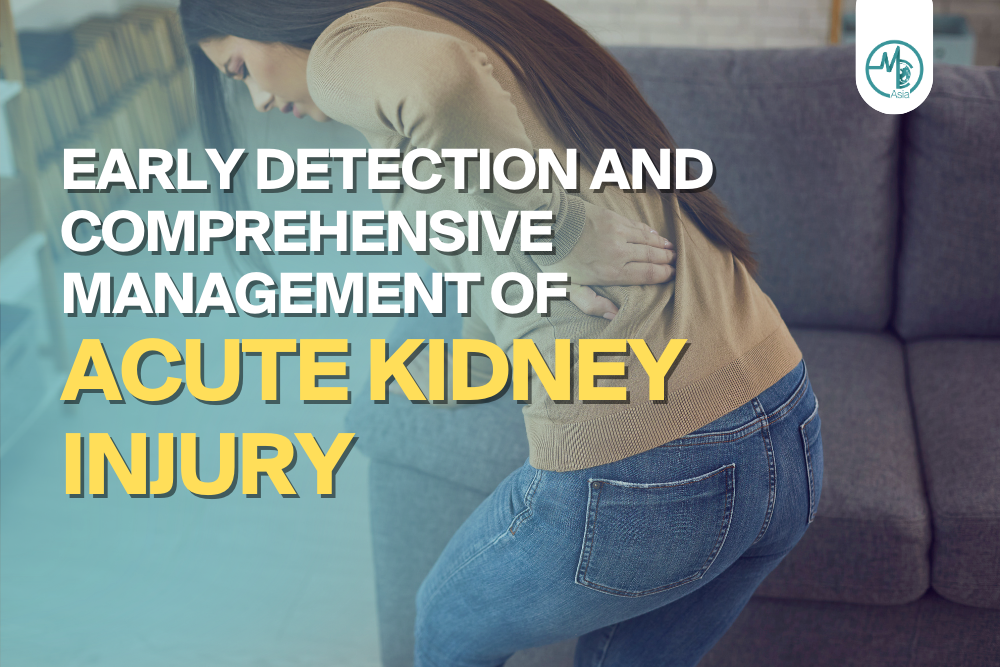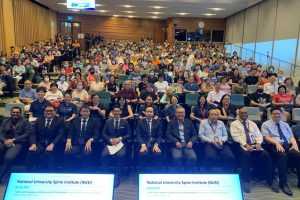The proactive detection of acute kidney injury (AKI) stands as a cornerstone in mitigating the impact of this reversible condition, according to the insights shared by Dr. Nika Kristine Lee, Chief Fellow of Adult Nephrology at the Chinese General Hospital and Medical Center.
In a health forum organised by the Philippine College of Physicians, Dr Lee elucidated the reversible nature of acute kidney injury. She also underscored the pivotal role of early identification and correction of underlying causes in restoring and improving kidney function.
Understanding Acute Kidney Injury
Acute kidney injury (AKI) is also referred to as acute renal failure (ARF). It results in the accumulation of waste products in the bloodstream. Therefore, it challenges the kidneys to maintain proper fluid balance within the body. Furthermore, AKI can impact various organs, including the brain, heart, and lungs. This condition is frequently observed in hospitalised patients, particularly those in intensive care units. It is more prevalent among older adults.
Dr. Lee also provided a lucid understanding of AKI, or acute renal failure, emphasising its reversible nature. The crux of successful treatment lies in the timely identification and correction of the underlying causes. This paves the way for the restoration of normal kidney function. Supportive management, she highlighted, emerges as the primary treatment strategy. To illustrate, in cases where volume loss, stemming from factors like diarrhoea, vomiting, or inappropriate food consumption, triggers AKI, a simple yet effective solution is hydration.
Detecting Acute Kidney Injury
The term “acute” implies transience, with AKI typically lasting two to seven days, according to Dr. Lee. Recognition of this condition is facilitated through multiple methods such as urinalysis, urine blood count, renal biopsy, imaging studies, and serum creatinine levels. According to Dr Lee, the normal creatinine level ranges from 0.7 to 1.3 milligrams per deciliter (mg/dL) for men and 0.5 to 1.1 mg/dL for women. Meanwhile, the typical urine volume ranges between 50-100 millilitres.
Addressing Misinterpretations
Dr Lee addressed a prevalent misconception regarding pelvic pain and kidney problems. She urged the public to seek immediate medical attention through urinalysis and creatinine tests if kidney issues are suspected. Due to the kidney’s anatomical location, Dr Lee stated there is the potential for misinterpretation. Therefore, she stressed the importance of consulting a healthcare professional for accurate diagnosis and guidance.
Risk Factors and General Prevalence
The elderly and individuals with pre-existing conditions like hypertension and diabetes also face an elevated risk of experiencing acute kidney injury (AKI). However, it is crucial to note that this condition is not exclusive to specific age groups. Dr Lee emphasised that AKI can affect individuals across the entire age spectrum. Although ageing introduces physiological changes that may heighten susceptibility, it is essential to recognise that the risk is a nuanced and individualised consideration, even for younger age brackets. The multifaceted nature of AKI underscores the importance of comprehensive awareness and proactive health management across diverse demographic profiles.
Tips for Kidney Care
Dr. Lee’s forum presentation encompassed valuable tips for kidney care, extending beyond the realms of treatment into proactive health measures. Maintaining a nutrient-rich diet, managing normal blood pressure, abstaining from smoking, and ensuring proper hydration were underscored as simple yet effective strategies for promoting kidney health. Dr Lee emphasised that additional consumption of water may be necessary in certain cases to replenish volume losses. This may extend beyond the recommended daily water intake of at least eight glasses.
Conclusion
Dr Nika Kristine Lee’s comprehensive insights into AKI underscore the critical importance of early detection and holistic management. By fostering awareness of signs, emphasising the need for immediate medical attention, and offering practical guidance for proactive kidney care, her expertise contributes significantly to the collective effort in safeguarding kidney health and promoting overall well-being.














